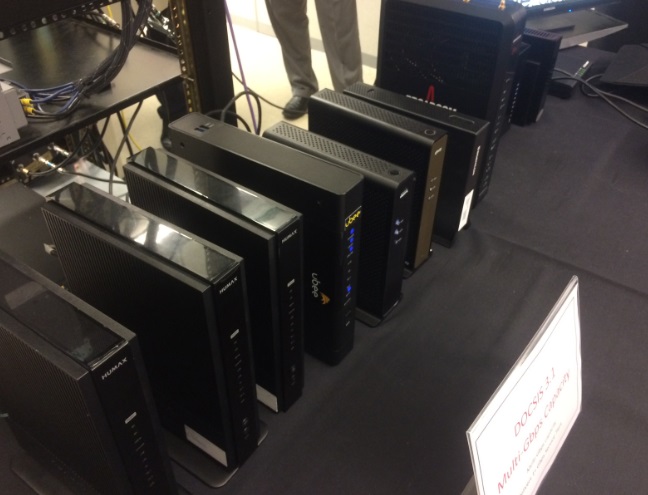Broadcom Chips in For DOCSIS 3.1 Breakthroughs
The smarter way to stay on top of the multichannel video marketplace. Sign up below.
You are now subscribed
Your newsletter sign-up was successful

Broadcom Corp. said “multiple” cable modem vendors have achieved DOCSIS 3.1 certification from CableLabs with products powered by its BCM3390 chipset.
Five suppliers – Askey Computer, CastleNet, Netgear, Technicolor and Ubee Interactive – recently achieved D3.1 certification for their respective cable modem models. All are believed to be based on Broadcom’s chipset, though only one of the group, Ubee, has confirmed as much so far.
Intel Corp. (in partnership with MaxLinear) and STMicroelectronics are also developing DOCSIS 3.1-based chipsets.
CableLabs certification is required for vendors to sell cable modems at retail, and is typically a technical achievement required by MSOs that buy DOCSIS-powered devices that are leased to broadband customers.
DOCSIS 3.1 is targeting capacities of up to 10 Gbps down and at least 1 Gbps upstream.
However, Broadcom’s first D3.1-based platform, which will support DOCSIS 3.0 and DOCSIS 3.1 transmissions, will handle downloads up to 5 Gbps and 2 Gbps-plus in the upstream when fully loaded. It’ll do that by supporting D3.1’s spec requirements of two OFDM-based 192 MHz-wide downstream channels and 32 single-carrier DOCSIS QAM downstream channels, plus two 96 MHz-wide OFDM-A upstream blocks and eight single-carrier DOCSIS QAM upstream channels.
Broadcom noted that the certified products include support for beefier upstreams (mid-splits up to 85 MHz and top-splits that raise the ceiling to 204 MHz). North American DOCSIS systems are typically limited to a range of 5 MHz to 42 MHz.
The smarter way to stay on top of the multichannel video marketplace. Sign up below.
Broadcom said the BCM3390 is currently available, and expects production volumes of DOCSIS 3.1-certified cable modem and residential gateways based on the chipset to start in the first half of 2016.
"The speed with which the DOCSIS 3.1 specification and certification has been completed underscores the competitive landscape of offering Gigabit-speed services to residential subscribers," said Dan Marotta, Broadcom EVP and GM of Broadcom’s Broadband & Connectivity Group, said in a statement. "Broadcom was first to lead the market with hardware for cable operators to expand their broadband services, and is now the first DOCSIS 3.1 silicon to receive CableLabs' certification as well."
The achievement also earned praise from two MSOs that are aggressively pursuing DOCSIS 3.1 strategies.
"DOCSIS 3.1 technology is vital for Comcast. Earlier this year we installed the world's first DOCSIS 3.1 modem on a customer-facing network and before the end of 2016 we will begin offering DOCSIS 3.1-powered gigabit service to customers in several parts of the country," added Tony Werner, EVP and CTO of Comcast. "I applaud Broadcom for its progress on certification process, which helps to create a clear path for technology that will enhance our customers' online experiences."
"Our customers expect us to stay ahead of the curve in providing the latest broadband services and content," said Balan Nair, Liberty Global’s EVP and CTO. "Broadcom's smooth passage through the DOCSIS 3.1 certification process helps the cable industry continue on this journey as we all look to new ways in which we can deliver our customers an even better experience."
